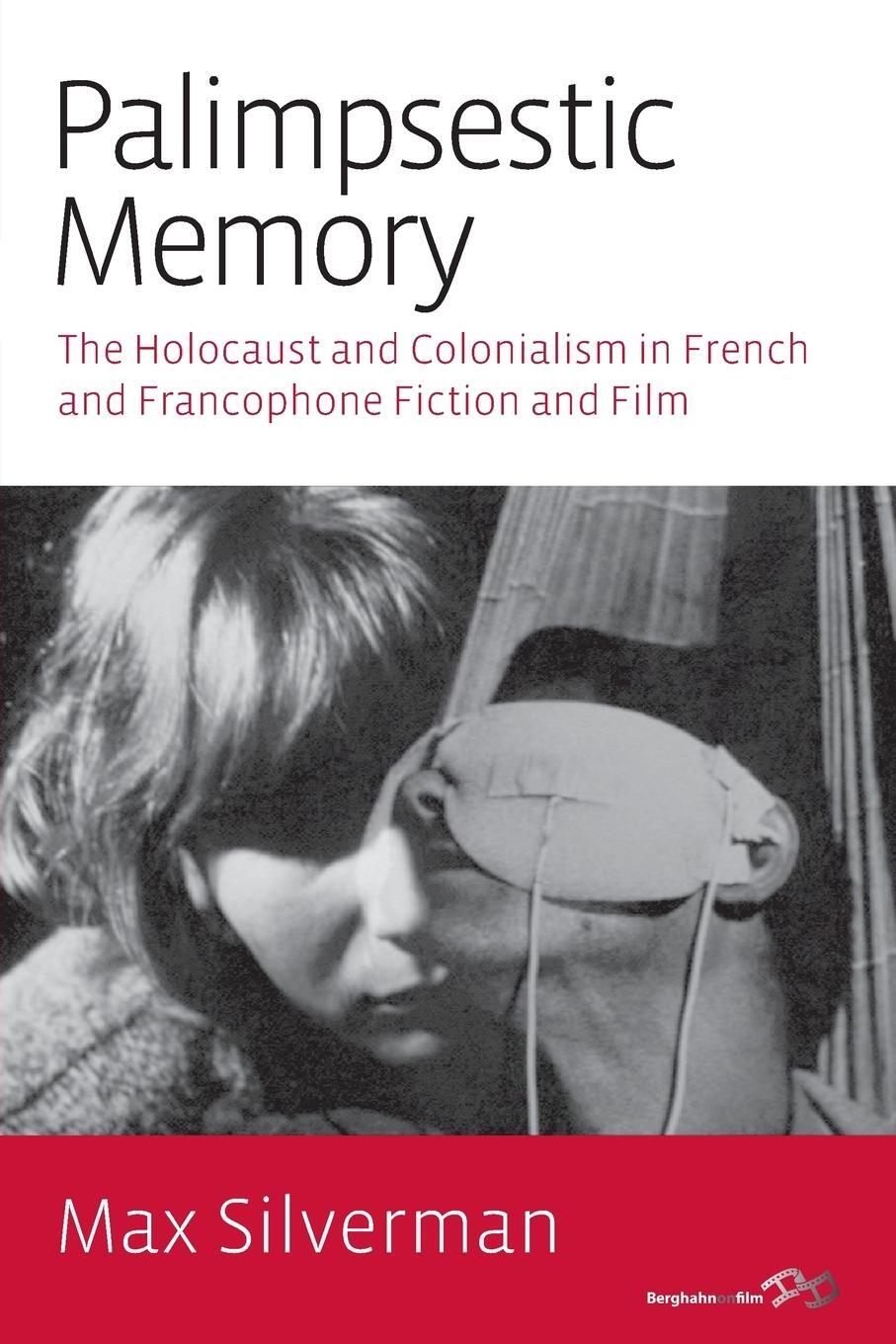38,00 €*
Versandkostenfrei per Post / DHL
Aktuell nicht verfügbar
"In this timely book, Max Silverman deepens our understanding of the transcultural and transnational dynamics of memory. Lucidly written, boldly argued, and wide-ranging in its cultural and theoretical references, Palimpsestic Memory challenges sectarian, competitive approaches to the past. It derives a critical politics of remembrance from an openness to memory's multiple layerings and poetic haunting - its 'palimpsestic' nature. Inspired by early postwar theorists of extreme violence such as Arendt, Césaire, Fanon, and Rousset, Silverman reveals the interconnected histories of genocide and colonialism that have been there all along, but are too frequently ignored or repressed. Through nuanced readings of French-language literary, cinematic, and theoretical texts - from Assia Djebar and Georges Perecto Alain Resnais and Jean-Luc Godard, by way of Jacques Derrida and Hélène Cixous - he offers a necessary new understanding of both the work of memory and the ethics of the human in a post-Holocaust, postcolonial world." · Michael Rothberg, University of Illinois; author of >Multidirectional Memory: Remembering the Holocaust in the Age of Decolonization
"Max Silverman's Palimpsestic Memory is a significant contribution to the renewal of memory studies over the past decade. Silverman argues for a model of memory that is non-linear and non-exclusive, not bound to the cultural narrative of a single group or nation but pointing simultaneously to diverse histories. This model suggests coexistence and mutual reinforcement of memories of specific events, rather than competition among groups vying for "uniqueness." Silverman aims for a paradigm shift in building bridges between post-colonial studies and Holocaust studies." · Susan Rubin Suleiman, Harvard University; author of Crises of Memory and the Second World War.
The interconnections between histories and memories of the Holocaust, colonialism and extreme violence in post-war French and Francophone fiction and film provide the central focus of this book. It proposes a new model of 'palimpsestic memory', which the author defines as the condensation of different spatio-temporal traces, to describe these interconnections and defines the poetics and the politics of this composite form. In doing so it is argued that a poetics dependent on tropes and techniques, such as metaphor, allegory and montage, establishes connections across space and time which oblige us to perceive cultural memory not in terms of its singular attachment to a particular event or bound to specific ethno-cultural or national communities but as a dynamic process of transfer between different moments of racialized violence and between different cultural communities. The structure of the book allows for both the theoretical elaboration of this paradigm for cultural memory and individual case-studies of novels and films.
Max Silverman is Professor of Modern French Studies at the University of Leeds. He has written on cultural memory, representations of the Holocaust, post-colonial theory and cultures, and immigration, race and nation in France. His recent publications include Concentrationary Cinema: Aesthetics as Political Resistance in Alain Resnais's 'Night and Fog', co-edited with Griselda Pollock (Berghahn Books, 2011).
"In this timely book, Max Silverman deepens our understanding of the transcultural and transnational dynamics of memory. Lucidly written, boldly argued, and wide-ranging in its cultural and theoretical references, Palimpsestic Memory challenges sectarian, competitive approaches to the past. It derives a critical politics of remembrance from an openness to memory's multiple layerings and poetic haunting - its 'palimpsestic' nature. Inspired by early postwar theorists of extreme violence such as Arendt, Césaire, Fanon, and Rousset, Silverman reveals the interconnected histories of genocide and colonialism that have been there all along, but are too frequently ignored or repressed. Through nuanced readings of French-language literary, cinematic, and theoretical texts - from Assia Djebar and Georges Perecto Alain Resnais and Jean-Luc Godard, by way of Jacques Derrida and Hélène Cixous - he offers a necessary new understanding of both the work of memory and the ethics of the human in a post-Holocaust, postcolonial world." · Michael Rothberg, University of Illinois; author of >Multidirectional Memory: Remembering the Holocaust in the Age of Decolonization
"Max Silverman's Palimpsestic Memory is a significant contribution to the renewal of memory studies over the past decade. Silverman argues for a model of memory that is non-linear and non-exclusive, not bound to the cultural narrative of a single group or nation but pointing simultaneously to diverse histories. This model suggests coexistence and mutual reinforcement of memories of specific events, rather than competition among groups vying for "uniqueness." Silverman aims for a paradigm shift in building bridges between post-colonial studies and Holocaust studies." · Susan Rubin Suleiman, Harvard University; author of Crises of Memory and the Second World War.
The interconnections between histories and memories of the Holocaust, colonialism and extreme violence in post-war French and Francophone fiction and film provide the central focus of this book. It proposes a new model of 'palimpsestic memory', which the author defines as the condensation of different spatio-temporal traces, to describe these interconnections and defines the poetics and the politics of this composite form. In doing so it is argued that a poetics dependent on tropes and techniques, such as metaphor, allegory and montage, establishes connections across space and time which oblige us to perceive cultural memory not in terms of its singular attachment to a particular event or bound to specific ethno-cultural or national communities but as a dynamic process of transfer between different moments of racialized violence and between different cultural communities. The structure of the book allows for both the theoretical elaboration of this paradigm for cultural memory and individual case-studies of novels and films.
Max Silverman is Professor of Modern French Studies at the University of Leeds. He has written on cultural memory, representations of the Holocaust, post-colonial theory and cultures, and immigration, race and nation in France. His recent publications include Concentrationary Cinema: Aesthetics as Political Resistance in Alain Resnais's 'Night and Fog', co-edited with Griselda Pollock (Berghahn Books, 2011).
Max Silverman is Professor of Modern French Studies at the University of Leeds. He has written on cultural memory, representations of the Holocaust, post-colonial theory and cultures, and immigration, race and nation in France. His recent publications include Concentrationary Cinema: Aesthetics as Political Resistance in Alain Resnais's 'Night and Fog', co-edited with Griselda Pollock (Berghahn Books, 2011).
Introduction: Staging Memory as Palimpsest
Chapter 1. The Politics and Poetics of Memory
1.1 The Concentrationary Universe and Total Domination
1.2 The Politics of Memory: Between the Holocaust and Colonialism
1.3 The Poetics of Memory
1.4 Interconnecting Memories
Chapter 2. Concentrationary Memory
2.1 Fearful Imagination
2.2 Alain Resnais's Nuit et brouillard
2.3 Mémoire-monde
Chapter 3. Anti-colonialism Revisited
3.1 Frantz Fanon: Peau noire masques blancs
3.2 Mohammed Dib: Qui se souvient de la mer
3.3 Assia Djebar: Femmes d'Alger dans leur appartement
Chapter 4. Colonial Hauntings of the Holocaust Imaginary
4.1 Charlotte Delbo: Auschwitz et après
4.2 Georges Perec: W ou le souvenir d'enfance
4.3 Patrick Modiano: Dora Bruder
Chapter 5. The Memory of the Image
5.1 Jean-Luc Godard:Histoire(s) du cinéma
5.2 Michael Haneke: Caché
5.3 'Un montage qui ne sépare rien'
Chapter 6. Memory Traces
6.1 Hélène Cixous's 'Pieds nus' and Jacques Derrida's Le Monolinguisme de l'autre, ou le prothèse de l'origine
6.2 Patrick Chamoiseau and Rodolphe Hammadi: Guyane: Traces-mémoires du bagne
Chapter 7. Cosmopolitical Memory
Bibliography
Index
| Erscheinungsjahr: | 2015 |
|---|---|
| Genre: | Kunst |
| Rubrik: | Kunst & Musik |
| Thema: | Theater & Film |
| Medium: | Taschenbuch |
| Seiten: | 216 |
| ISBN-13: | 9781782389002 |
| ISBN-10: | 1782389008 |
| Sprache: | Englisch |
| Einband: | Kartoniert / Broschiert |
| Autor: | Silverman, Max |
| Hersteller: | Berghahn Books |
| Maße: | 229 x 152 x 12 mm |
| Von/Mit: | Max Silverman |
| Erscheinungsdatum: | 01.02.2015 |
| Gewicht: | 0,321 kg |
Max Silverman is Professor of Modern French Studies at the University of Leeds. He has written on cultural memory, representations of the Holocaust, post-colonial theory and cultures, and immigration, race and nation in France. His recent publications include Concentrationary Cinema: Aesthetics as Political Resistance in Alain Resnais's 'Night and Fog', co-edited with Griselda Pollock (Berghahn Books, 2011).
Introduction: Staging Memory as Palimpsest
Chapter 1. The Politics and Poetics of Memory
1.1 The Concentrationary Universe and Total Domination
1.2 The Politics of Memory: Between the Holocaust and Colonialism
1.3 The Poetics of Memory
1.4 Interconnecting Memories
Chapter 2. Concentrationary Memory
2.1 Fearful Imagination
2.2 Alain Resnais's Nuit et brouillard
2.3 Mémoire-monde
Chapter 3. Anti-colonialism Revisited
3.1 Frantz Fanon: Peau noire masques blancs
3.2 Mohammed Dib: Qui se souvient de la mer
3.3 Assia Djebar: Femmes d'Alger dans leur appartement
Chapter 4. Colonial Hauntings of the Holocaust Imaginary
4.1 Charlotte Delbo: Auschwitz et après
4.2 Georges Perec: W ou le souvenir d'enfance
4.3 Patrick Modiano: Dora Bruder
Chapter 5. The Memory of the Image
5.1 Jean-Luc Godard:Histoire(s) du cinéma
5.2 Michael Haneke: Caché
5.3 'Un montage qui ne sépare rien'
Chapter 6. Memory Traces
6.1 Hélène Cixous's 'Pieds nus' and Jacques Derrida's Le Monolinguisme de l'autre, ou le prothèse de l'origine
6.2 Patrick Chamoiseau and Rodolphe Hammadi: Guyane: Traces-mémoires du bagne
Chapter 7. Cosmopolitical Memory
Bibliography
Index
| Erscheinungsjahr: | 2015 |
|---|---|
| Genre: | Kunst |
| Rubrik: | Kunst & Musik |
| Thema: | Theater & Film |
| Medium: | Taschenbuch |
| Seiten: | 216 |
| ISBN-13: | 9781782389002 |
| ISBN-10: | 1782389008 |
| Sprache: | Englisch |
| Einband: | Kartoniert / Broschiert |
| Autor: | Silverman, Max |
| Hersteller: | Berghahn Books |
| Maße: | 229 x 152 x 12 mm |
| Von/Mit: | Max Silverman |
| Erscheinungsdatum: | 01.02.2015 |
| Gewicht: | 0,321 kg |






![Cover: 9783835390782 | Schlagwetter | Der Geruch der Katastrophe, Essay [KUP] | Didi-Huberman Cover: 9783835390782 | Schlagwetter | Der Geruch der Katastrophe, Essay [KUP] | Didi-Huberman](https://preigu.de/media/8b/09/ea/1693860392/9783835390782-01-1693860388.jpg)


